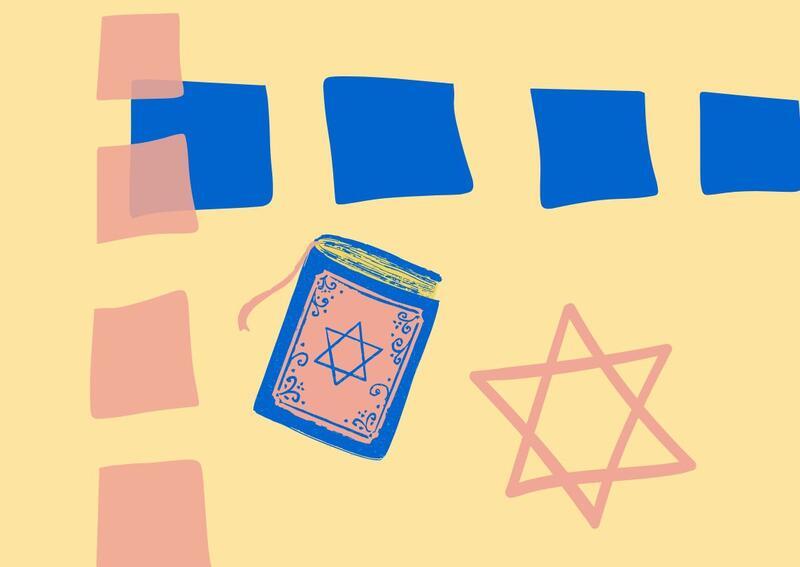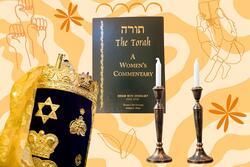Am I a Bad Jew?
I was thirteen when I slept in on a Saturday for the first time. The night before, I had asked my abba to wake me up at 9:00 am for Shabbat services, just like he had done every week since my bat mitzvah. But that morning, when he gently shook me awake, all I could think about was getting back under the covers. I remember seeing the confusion and faint disappointment that clouded his features as I shook my head, pulled the blanket over my face, and promptly fell back to sleep.
When I woke an hour later and remembered the response I gave to my abba, a wave of guilt washed over me. I quickly jumped out of bed and threw on a dress. Holding a mouthful of challah in one hand and my siddur in the other, I barreled out of my house to synagogue. That morning, instead of asking G-d for the usual (peace, end to world hunger, or the latest makeup product), I begged G-d to still love me. All day, one question kept ravaging my mind: “Am I a bad Jew?”
Though studies show Protestant and Catholics report higher guilt levels compared to Jews, Judaism is still known for religious guilt. Like many others, I have felt immense guilt in my relationship to Judaism. Although I was never explicitly taught this, whenever I deviated from what I believed made a “good Jew” while growing up (keeping kosher, observing Shabbat, or dressing modestly), I felt I was failing G-d. I thought I would face punishment and assumed any misfortune I experienced was somehow linked to my religious shortcomings. These feelings are not unique to my Jewish experience. They are ones felt by millions of Jews, both in the present and those who lived centuries ago.
A year after my bat mitzvah, I reread my Torah portion, Parshat Vayeshev. In this parsha, Joseph becomes the favorite son of his father Jacob, causing Joseph’s eleven brothers to feel resentful. Consumed by jealousy, the brothers sell Joseph into slavery. To hide what they did, they tell their father that Joseph was killed. Years later, during a famine, the brothers travel to Egypt to buy food and come face to face with Joseph, who is now a powerful Egyptian official. Joseph’s brothers don’t recognize him, and Joseph chooses to hide his identity. He accuses the brothers of spying, withholds grain, and demands they bring back their youngest brother, Benjamin, to prove their honesty.
Under pressure and believing they are being punished by G-d, the brothers’ guilt surfaces:
“And [the brothers] said to one another, ‘Indeed, we are guilty for our brother, that we witnessed the distress of his soul when he begged us, and we did not listen. That is why this trouble has come upon us.’” (Genesis 42:21)
I saw myself in that verse. Like Joseph’s brothers, I too believed whatever went wrong in my life was punishment for my religious choices. Guilt consumed me. However, what comes next in the Torah offers an alternative approach to these feelings of shame.
When the brothers return with Benjamin, Joseph engineers a moral test. He plants a silver cup in Benjamin’s bag and offers the brothers a chance to abandon Benjamin, just as they once abandoned Joseph. This time, however, the brothers choose differently. Judah, the one who initially suggested selling Joseph, offers himself as a slave in Benjamin’s place. This choice is their teshuva (repentance). The brothers do not solely feel guilty. They take responsibility, show remorse, and demonstrate that their character has improved.
Rereading that story reframed how I understand guilt in my own life. Both Joseph’s brothers and I made choices we regretted. We both internalized guilt and feared punishment from G-d. However, we both ultimately learned that guilt is not the end of the story. After guilt should come reflection and then change. Teshuvah is not just about apologizing. It is also about doing things differently when given another chance.
That realization shifted my relationship with Judaism. When I feel guilt now, either for not attending services or not following a law I once thought essential, I ask myself, “Is this practice helping me grow into the person I want to be?” If the answer is no, I reflect, and I adjust. Sometimes it leads to teshuvah. Sometimes it leads to letting go of a custom that I no longer feel connected to.
The story of Joseph’s brothers teaches us that guilt, when handled properly, is not something to fear. Instead, it is something to learn from. Religious guilt can be painful and overwhelming. If managed incorrectly, it can lead to anxiety, depression, and low self-esteem. But if we treat guilt as an avenue for reflection rather than a source of shame, it can lead to growth. Guilt can push us to pause, reconsider, and make future choices with greater awareness.
When I was thirteen, the question I asked myself was “Am I a bad Jew?” Now knowing more, I instead ask myself, “What kind of Jew do I want to be?” Guilt alone does not give us an answer. However, when coupled with reflection and action, it can give us the chance to get there.
This piece was written as part of JWA’s Rising Voices Fellowship.







